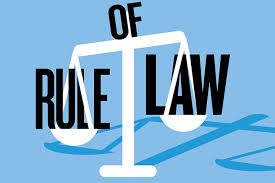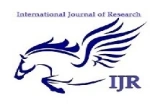As the title of the article itself suggests that it describe the separation of the powers, the division of the power between different organs like the human body, the work is distributed among different organs not centralized in the particular, brain is the central organ as it regulates control coordination in the whole body. The separation of the power is like it is, the power is distributed and not centralized in the single organ.
As we know, democracy has three organs – executive, judiciary, legislature and the power distributed them accordingly. When we talk the executive organ, we have the union and state. The separation of power is given by the Montesquieu. According to this theorem, the separation of the power is defined as the power is distributed among different organs it is not centralized on the single body. It’s just to avoid the arbitrariness of the central organ, and to keep check and balance between different organ, a famous line the power corrupts and absolute power corrupts absolutely. Which in simple words that the, if power is absolute to a single organ it corrupts that source. When we dealing with this topic many questions just stuck in our mind, but we all know that if the whole power is given to the union then it creates arbitrary in the nation. It likes patriarchy, monarchy rather than democracy. As democracy have the ideology of the republic, so it maintains the checks and balance between the different organs. For example, the decentralization between the state and the union gives many matters to deal independently. The State has the power to make its own regulations regarding the policy. Like in COVID states have the authority related to unlocking policy accordingly the cases of their state. So with this example, we can understand, the decentralization concept. This also helps in the development of the local government as the state government can take look on the local self -government like panchayat. Now when we talk about the separation of the power it is given that legislative, executive, judiciary works independently but there are certain checks and balance imposed on them with the different organs. Like in the constitution it is given article 123 president is the executive head of the state but at a certain condition, it works as the legislative power. At the same time as in article 121, 211 talks about the state legislature and union legislature cannot talk about the High court and the Supreme Court proceedings and the conduct of the judges. Like there is a concept of Judicial review that the judiciary can strike down any law passes by the legislature if it has the unconstitutional in nature. If the law is against the supreme law, then the judiciary has the power to called that particular law as unconstitutional. In this manner, we can say that the judiciary has the check and balance over the legislative and executive, in the same manner, the legislative and executive have check balance over the judiciary but it doesn’t mean they have complete control over the organ but it is just to avoid the arbitrariness of the one organ. In this manner, the democracy gives the rights to an individual to express ones but at the same time there is a certain provision in the constitution just to avoid arbitrariness of the organ and the power is not centralized in the ingle organ but it is distributed among different organ accordingly.


